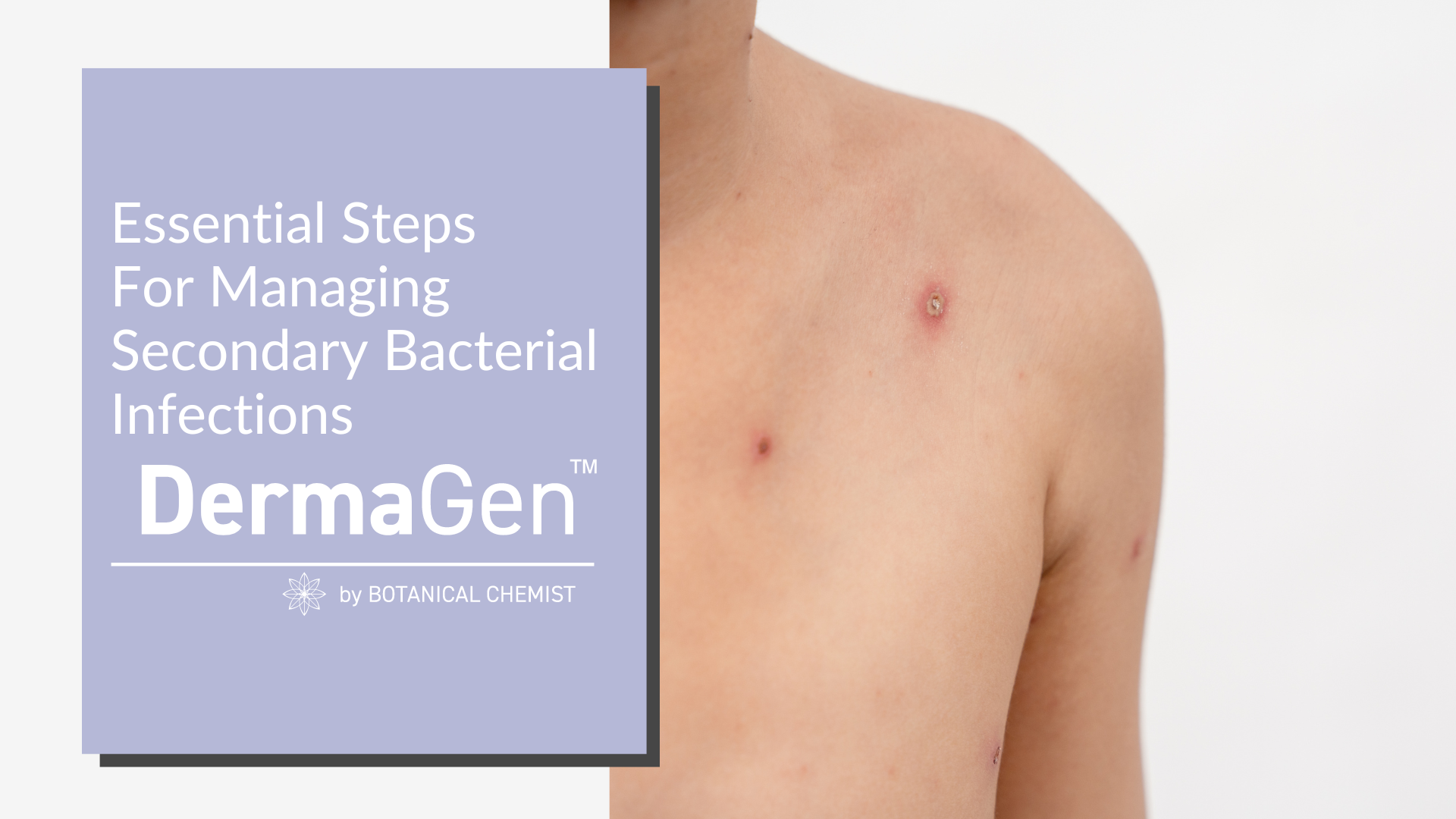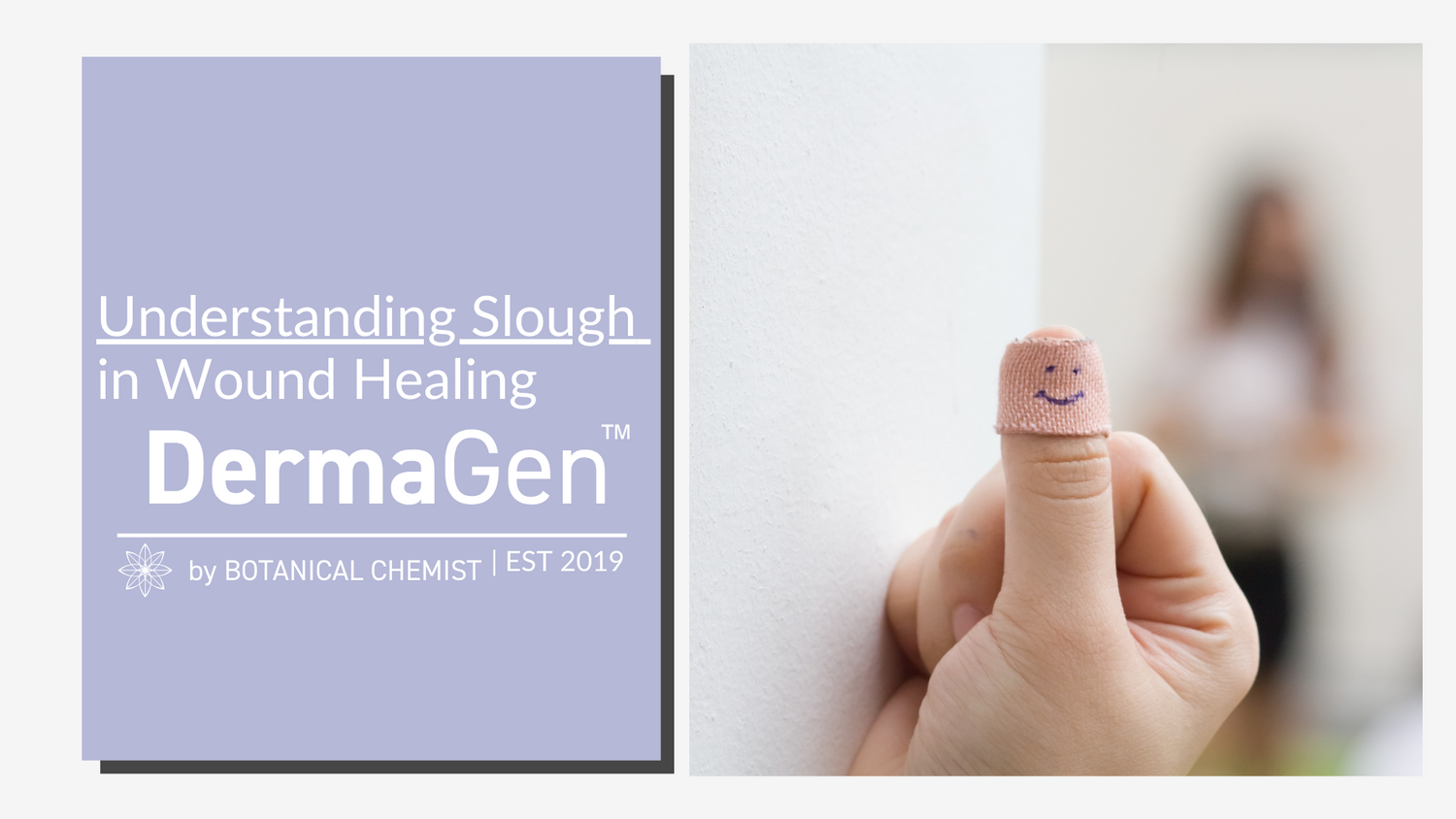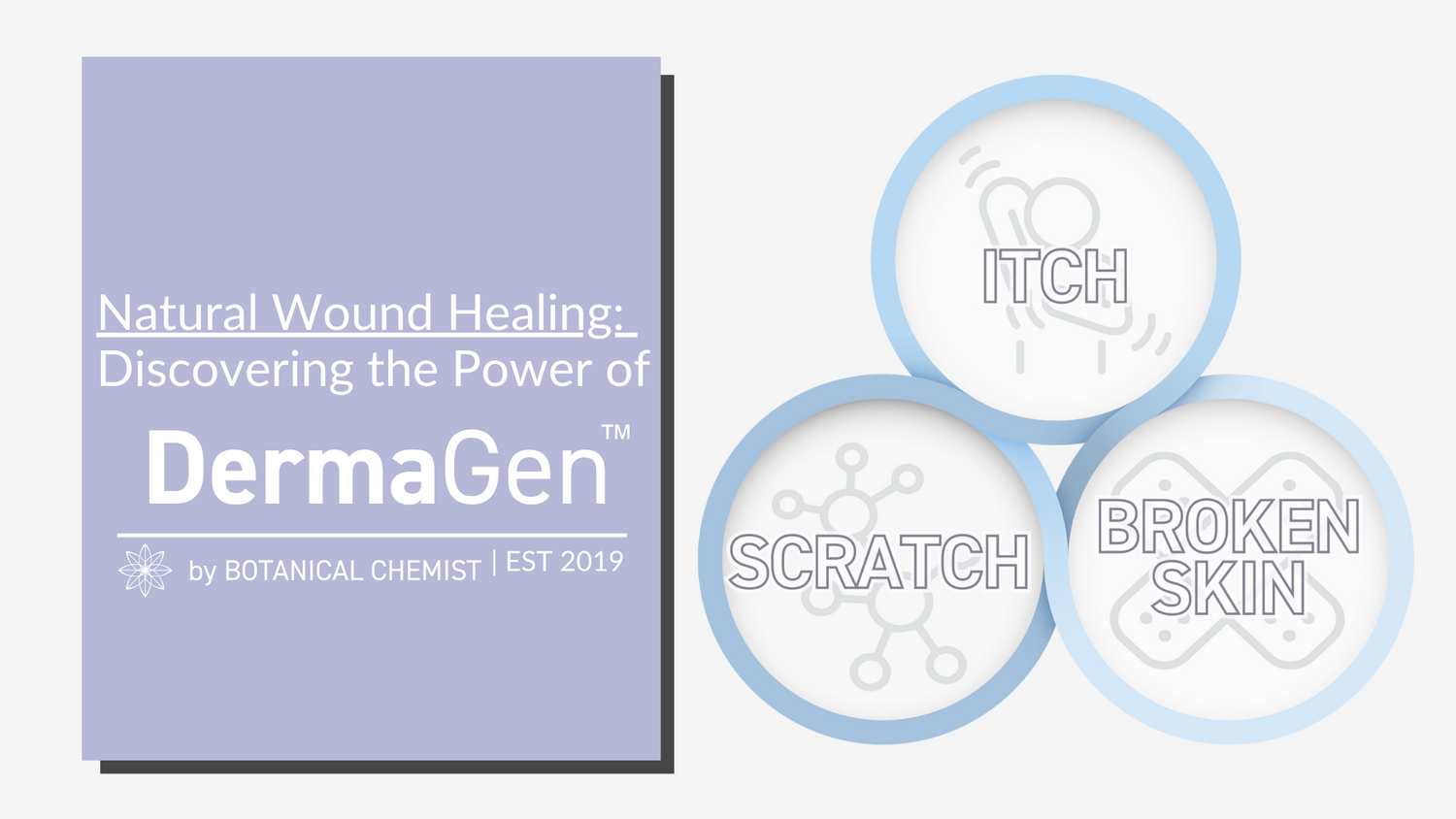When the skin barrier is compromised, it creates an opportunity for various microorganisms, such as bacteria (Staphylococcus aureus), fungi (Candida Albicans), and viruses (Herpes or Molluscum), to infiltrate the body and potentially cause infections.
Maintaining the integrity of the skin barrier is essential for overall skin health and preventing the development of secondary infections.
We strongly recommend topical steroids are not applied to open, broken, or infected skin. This is because it can increase the rate of absorption and heighten the risk of further microbial infections.
The side effects of topical steroids can include delayed wound healing, masking or exacerbating fungal infections, and aggravating pre-existing bacterial infections.
Navigating Eczema Flare-Ups with Bacterial Skin Infections: Effective Strategies and Remedies
It is crucial to maintain proper hygiene and adopt effective skincare practices to prevent the spread of secondary bacterial infections.
Ensure that towels and clothes that come into contact with the skin are washed daily, as they may contain traces of bacteria that can promote infection.
Mild antiseptics such as Chlorhexidine liquid (diluted for babies) can be used as a wash or added to diluted bleach baths.
Opt for gentle, healing soap alternatives, such as our natural Liquid Soap & Shampoo, which is pH balanced and contains therapeutic oils like Manuka Oil, Lavender, and Lemon-scented Eucalyptus.

Minimise scratching to prevent skin damage and bacterial spread through fingertips and under fingernails.
Keep nails trimmed or use cotton gloves for children.
Frequent hand washing with a Chlorhexidine liquid wash is essential to minimize the spread of bacteria.
Products like our Manuka Oil Balm or Propolis Balm can aid in skin healing, soothe redness and inflammation, and prevent minor infections, helping to manage eczema symptoms and protect against secondary bacterial infections.

If you suspect a skin infection, seek treatment promptly to prevent the infection from spreading.
Consult your doctor if you are uncertain whether it is a bacterial, fungal, or atopic rash, or if symptoms do not improve.





